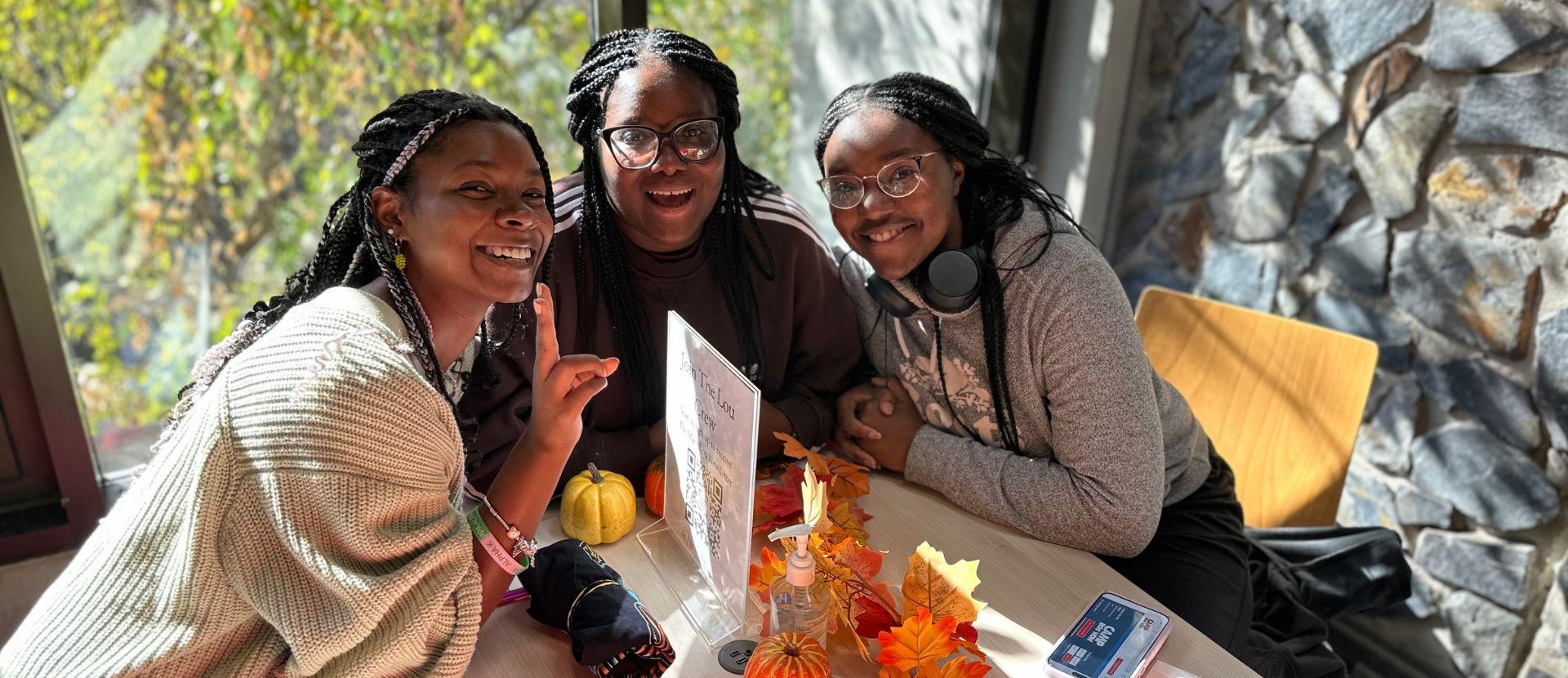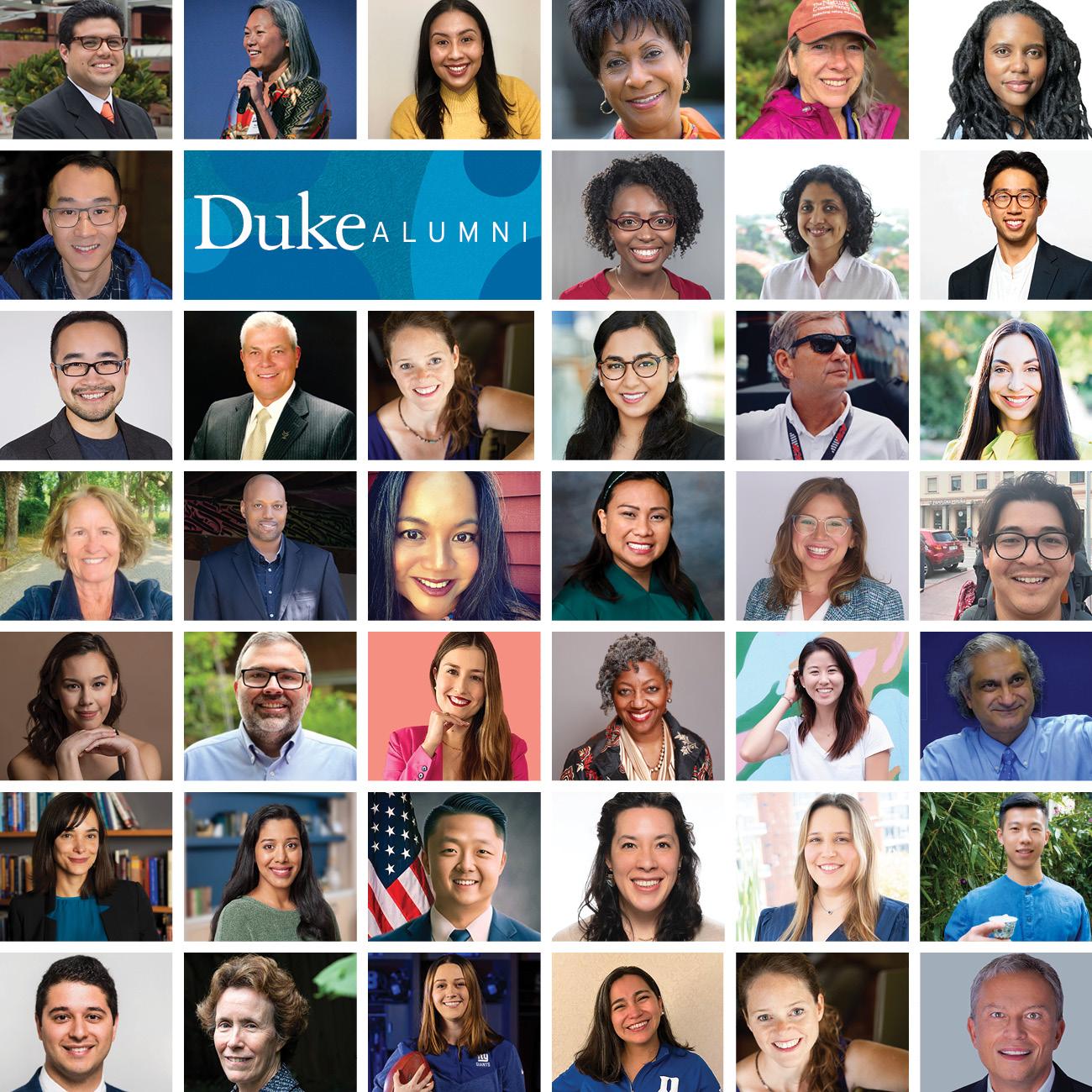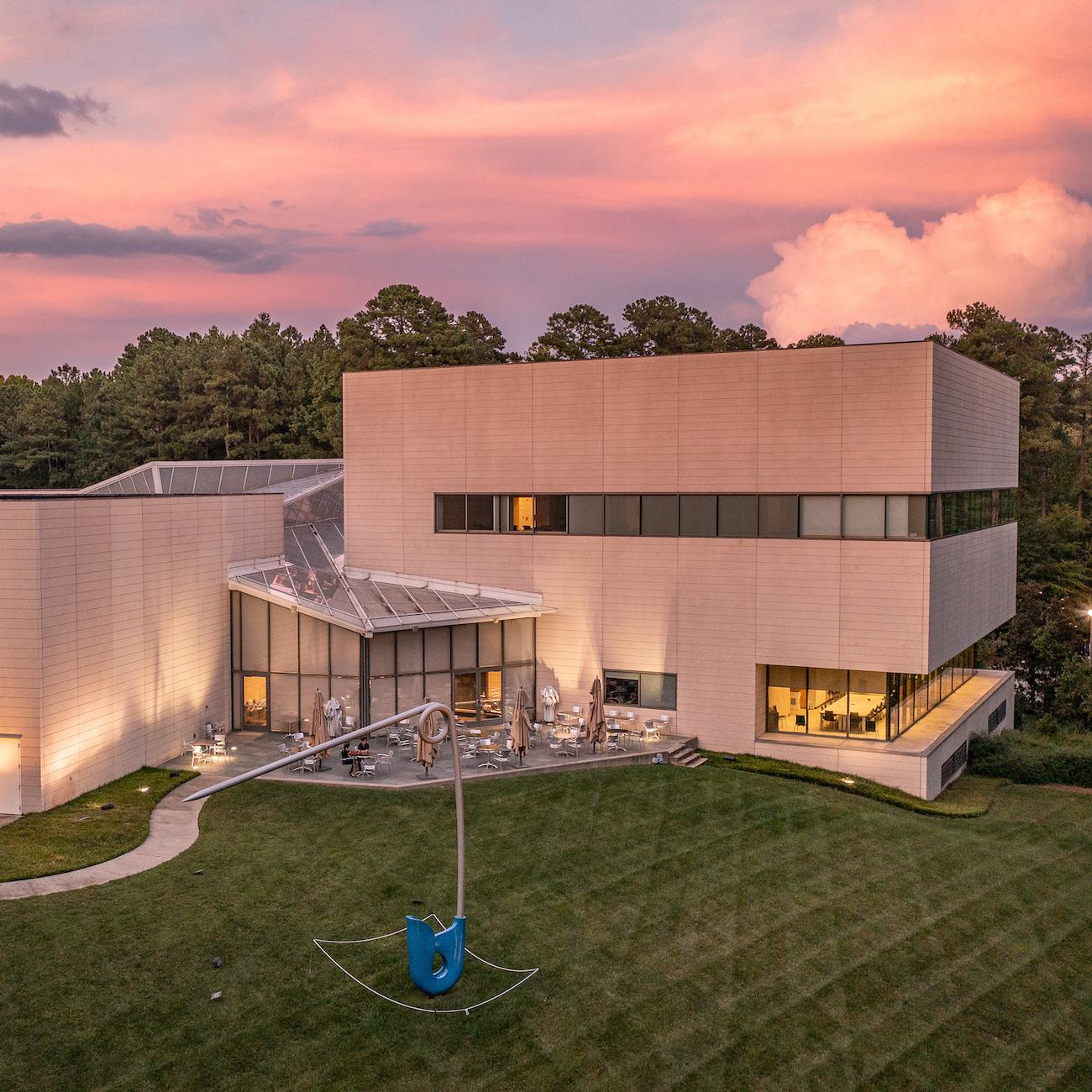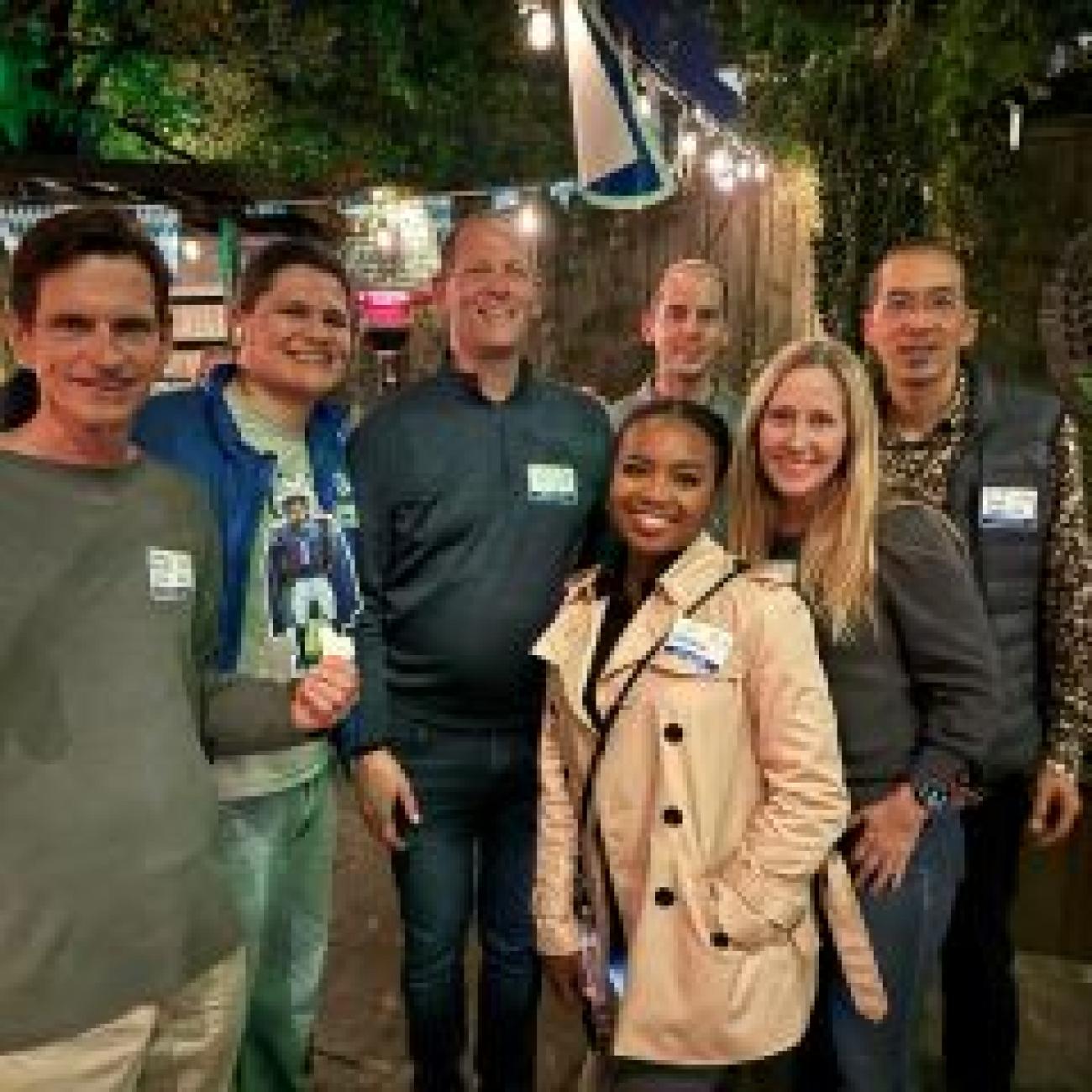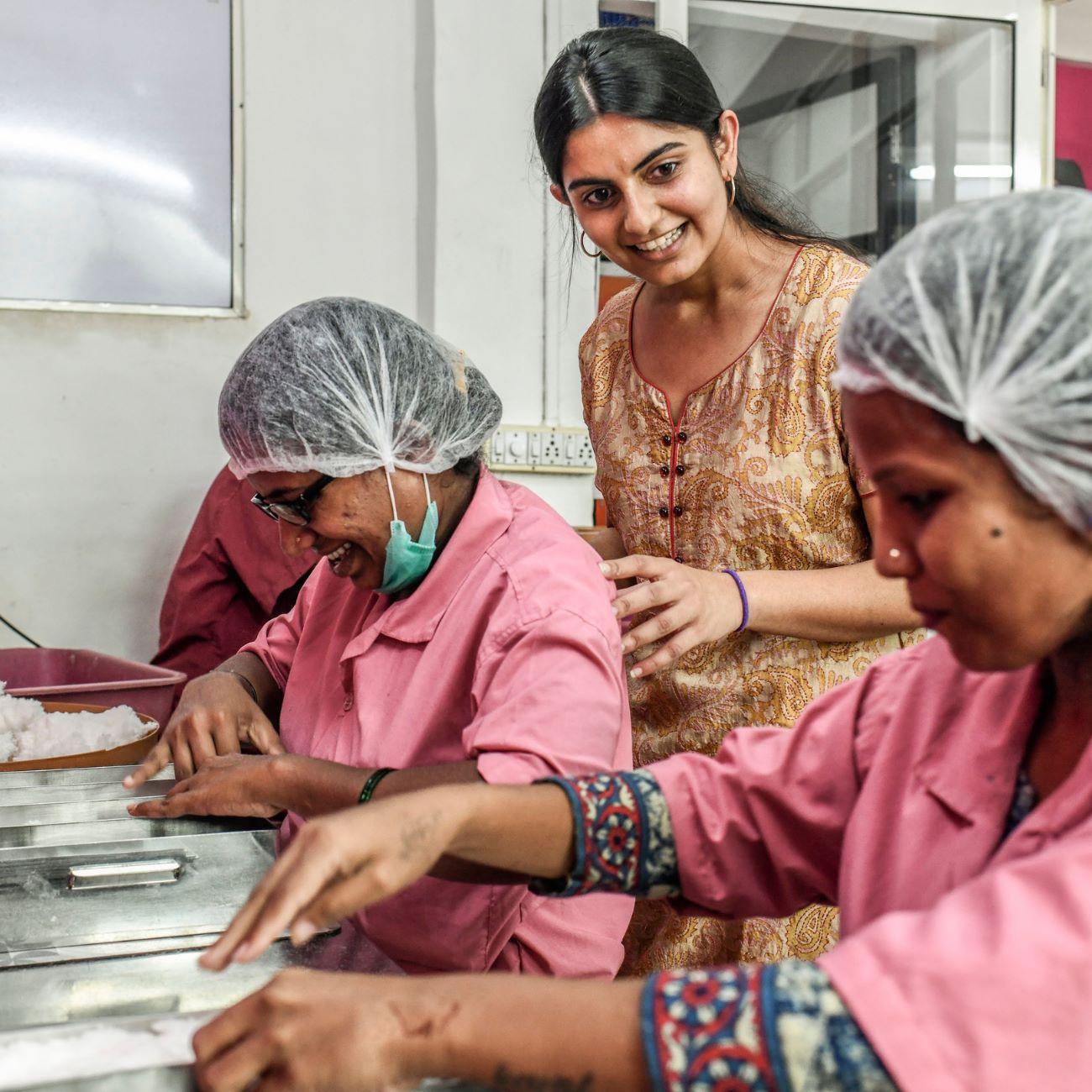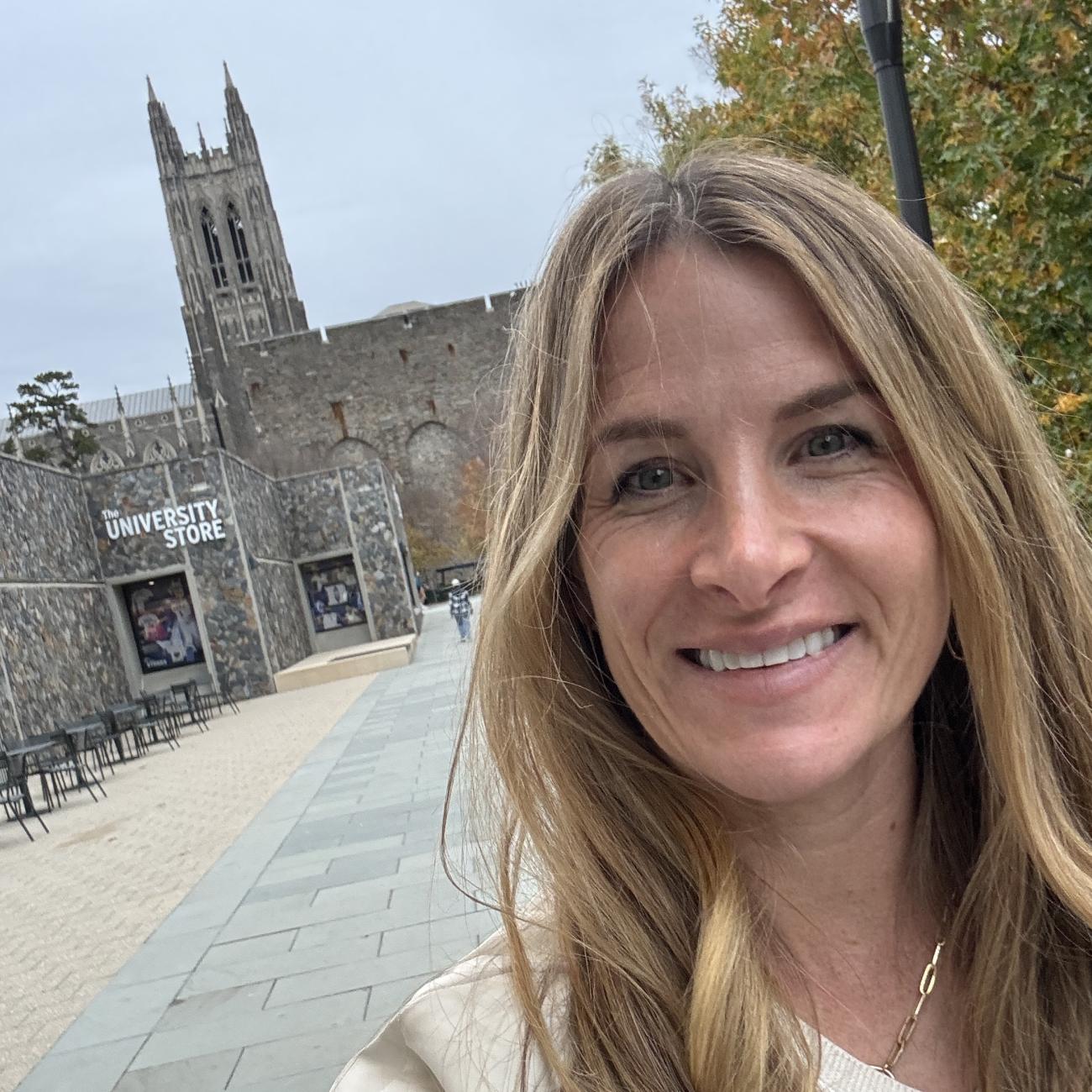Choose Your Own Story at the Mary Lou
The Mary Lou Williams Center for Black Culture’s 40 years at Duke is commemorated and explored through the lens of a current senior, dedicated alumni and devoted staff member of the organization.
The Mary Lou Williams Center for Black Culture (MLWC) celebrates 40 years at Duke by honoring their history, recognizing the present and looking towards the future. At their core, the Mary Lou values inclusivity, authenticity and is a community for Black-identified students and staff. The center is a space that not only prioritizes their undergraduates, but links together the greater Duke community.
As a highly significant part of Duke, people of all backgrounds play essential roles in the Mary Lou’s ongoing story. Hear directly from the voices of a current Duke student, faculty member and alumni about how the Mary Lou has touched their lives and how it can impact yours.
Jada Purkett ‘24, MLWC Abele Ambassador (Click to Listen)
A coffee machine bubbles in the background as Jada Purkett ‘24 realizes the shirt she’s unconsciously selected has significance to our conversation.
“I just noticed my shirt; this wasn't intentional at all." Purkett laughs. "Of course, there's On the Way.”
As she provides a detailed explanation about an orientation program that reaches out to first years and connects them to the Mary Lou, Purkett’s excitement is contagious. She goes onto describe about half a dozen more programs and the place she and many other students fondly call “The Lou”.
A Duke senior, Purkett was introduced to the center in the second semester of her first year. Instantly, she recalls feeling a sense of home and community despite joining in the middle of an isolating pandemic. With many clubs closed, programs postponed and classes online, Purkett remembers joining at a time that was incredibly difficult, yet transformative for the center.
“We were part of the reimagining of what the culture of the Lou was and how it needed to change,” says Purkett. “In the past, it catered to one type of Blackness, and we needed to figure out how people everywhere could come together and feel safe at the Lou.”
Soon after the center reopened, a water line broke flooding the entire space leaving it uninhabitable for students to use. Describing the damage as “heartbreaking”, Purkett points to the resilience the students and staff had to pivot and adapt to the temporary location at the Bryan Center.
“We turned this small room into the coziest room,” says Purkett. “Wherever we go the Lou has built a solid community that will continue for generations.”
Like many, Purkett is excited for the newly renovated Mary Lou to take shape which is set to open Spring 2024. Regardless, she notes the center is more about the people she has met. In her experience, the Mary Lou in any space will thrive because of the community that's been fostered.
“The Lou is a place to be, to be affirmed and to affirm others,” says Purkett. "There's no such thing as a stranger in the Lou."
Samaiyah Faison, Assistant Director of Mary Lou Williams Center for Black Culture (Click to Listen)
While the Mary Lou is sometimes synonymous with mainly student activities and programs, Samaiyah Faison, the center’s Assistant Director, notes how the Mary Lou had an impact on not only her professional but personal life.
“Listening to the students having conversations about their experiences, I felt like I could be my full Black self,” says Faison. “The Mary Lou really gives me a sense of belonging as a faculty member that sometimes isn’t talked about.”
Before working at the Mary Lou, Faison worked at the Center for Muslim Life at Duke where she enjoyed her role and loved her colleagues, however, was looking for the next step in her career. At the Mary Lou, Faison explains it’s much more than a workplace in how it conveys a sense of belonging and connectedness for students and faculty.
The Mary Lou hosts mixer events for faculty and staff across Duke to participate in and connect with one another. At these events, Faison says people from across the schools and administration come and truly connect in an environment with people they might have never crossed paths with otherwise. That feeling of acceptance translates directly to the relationship the faculty have with their students.
“For me, it’s like your auntie’s living room or your family’s backyard, it’s a place you can let your hair down that will always accept you for who you are.”
A feeling of full acceptance and retreat is integral in a university that is predominantly white, says Faison. Even during COVID-19 and after the flooding of their original space, she credits the students and staff’s strength in keeping the community together even when there was no physical location for them to meet. Now temporarily in the Bryan Center and through perseverance, Faison says that the feeling of home has stayed present.
“We are so close knit, and you don’t feel like you have to participate in social norms or pretend to be something you’re not.”
Tasala Rufai ’05 D.P.T.’12, Duke Black Alumni Vice President of Student Affairs (Click to Listen)
For Tasala Rufai ’05, D.P.T.’12, the Mary Lou was not originally part of her Duke story.
Before her first year, Rufai attended a majority Black high school in Maryland. Stepping onto Duke campus was a culture shock that she explains not only led to navigating a new environment and adjusting to university life, but finding where she fit into it all.
“Because I grew up in a school where the majority were Black people, I didn’t have to seek out support,” says Rufai. “It was an unnatural process for me, I hadn’t thought about reaching out because I never had to before.”
However, in her sophomore year Rufai began finding her confidence and place by joining the varsity volleyball team. After graduating from Duke for her undergrad and physical therapy degree, she reflected on her overall experience and decided to reconnect. During COVID-19, Rufai started her role as Duke Black Alumni (DBA) Vice President of Student Affairs with the goal of strengthening the connections with the Black community on and off campus. A great place to start: the Mary Lou Williams Center.
“Just to sit amongst students, you can really understand how diverse that space is despite everyone identifying as Black,” says Rufai. “We get to understand what it means to be a Black student at Duke.”
Now a major partner between DBA and the Mary Lou, Rufai notes how compared to her Duke experience, Duke has evolved to a place where people have a greater opportunity to express who they are. Still, she notes there is always growth and work to do as she looks to further improving student and alumni bonds with the center and larger community.
“For our Black students, however you choose to identify, there is a place for you here.” Rufai stresses. “Even if you don’t feel part of the Mary Lou, we can still direct you to resources to help.”







